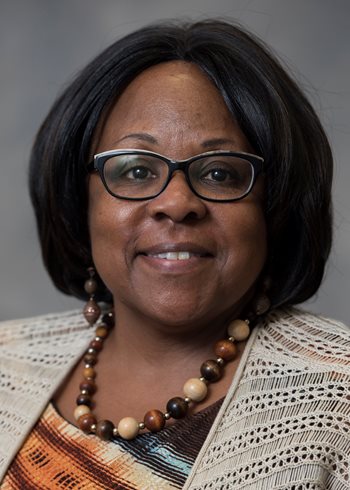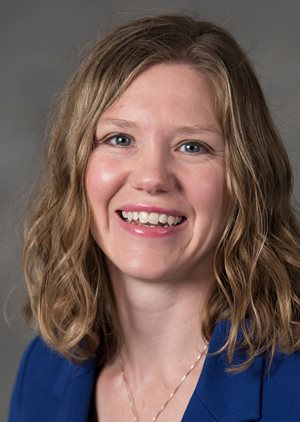The group prepared its final report during summer 2021 that detailed nearly 40 recommendations for redesigning the university’s bias response and reporting system.
Elon University has begun implementing a range of recommendations from its Bias Response System Working Group, which produced a detailed report for how the university could redesign its bias response and reporting system.
The final report and recommendations are now available on the Office of Inclusive Excellence, Education and Development website.
The group took a comprehensive approach to learning the current system, how it has been experienced and how it can be improved, said Randy Williams, vice president and associate provost for inclusive excellence, who supports the recommendations from the working group.
“The working group’s process of gathering information from students, alumni, faculty and staff raised awareness and visibility of the bias response system,” Williams said. “I look forward to the implementation of the recommendations, which align with our efforts toward an inclusive campus for all members.”
Completed in July 2021, the report includes 38 recommendations within six themes:
- Personnel,
- Partnerships,
- Education and training,
- Accountability and policy,
- Technology and usage of the webpage, and
- Transparency.
“The recommendations proposed by the Bias Response System Working Group are intended to advance the university’s goal of designing a bias response system that results in optimal outcomes and moves Elon closer to a campus culture where identity-based bias and discrimination are deemed unacceptable,” the working group concluded in the report. “The recommendations call for focused and efficient processes with adequate staffing and resources to minimize the perception of busyness.”
Some recommendations are already in effect. “We immediately changed the language and information on the reporting form to make it easier to complete a report,” said Carla Fullwood, director of the Office of Inclusive Excellence, Education and Development (OIEED). “Additionally, we’ve began revising the role of the Bias Impact Response and Education Team, focusing their charge on education and support.”
The bias response system is overseen by Fullwood’s office and she served as a member of the working group. The newly appointed implementation team will begin convening this spring to manage the complete installment of the group’s recommendations.
The working group was formed in Fall 2020 after President Connie Ledoux Book tasked Williams and Jon Dooley, vice president for student life, with reviewing and redesigning the current bias response and reporting system. Wendy Scott, associate dean for academic success and professor for Elon Law School, and Jenni Spangenberg, director of student conduct, served as co-chairs of the Bias Response System Working Group.

Scott and Spangenberg looked at the group’s assignment as divided into three categories: reviewing the strengths and weakness of the current bias response system, looking at the systems in place at comparable universities, and listening to Elon students, faculty, staff and alumni about their experiences with the university’s bias response system.
The discussions during listening sessions and the comparisons the working group was able to make between Elon’s system and those at other schools aided the final list of recommendations. “A lot of our conversations early on were about what was happening at other schools and the recommendations just started to form,” Scott said. “We also realized that some universities don’t even have a bias response system, so Elon was ahead of a lot of institutions that were comparable, but we also saw institutions that had systems that were more accessible.”

Leigh Anne Royster, the former director of the Center for Inclusive Excellence (now the OIEED), initially served as a co-chair of the group. Prior to her departure from Elon, she played an integral part in helping the group understand the system. Spangenberg, Royster’s successor as co-chair, brought to the group her experiences working with the bias response system. “If it was a potential policy situation, we would get referrals and we would refer some of our student conduct incident reports to the bias response system,” she said. “We worked collaboratively.”
The group’s work relied on establishing partnerships between offices on campus, such as the partnership with Campus Safety & Police. The group met with Chief Joe LeMire, who joined Elon in February 2021. “When the new chief began, we had an interview with him to include how he saw how Campus Safety and Police may interact with the bias response system,” Spangenberg said.
The group also looked at enhancing and expanding partnerships with the broader community beyond Elon’s campus. For instance, a recommendation under the report’s partnerships section calls for the university to “establish a relationship with and meet biannually with the Town of Elon and Alamance County leaders to determine ways to minimize bias incidents involving campus community members and members of the town or county communities.”
“We didn’t want to confine our concerns to the campus. A lot of the encounters that go through the BRS are incidents that happen off campus,” said Scott.
Transparency and providing more easily accessible information emerged as priorities. “A big concern that came up was transparency about the fact that the system was available, how to access it, and then, what resolutions and pathways were available,” Spangenberg said. “I think there was a perception that even if you reported through the bias response system, nothing would happen.”
Scott added that the working group was able to draw from what other universities were doing to determine how to improve transparency about the system at Elon. “We saw universities that were very transparent, very clear how things worked, and that was included in some of our recommendations,” she said.
If the group had differing opinions, they worked by consensus, because they all had a “genuine desire to improve campus climate,” Scott said. “Our conversations were always rigorous, especially when discussing what was going on at other universities.”
Since the working group was formed in 2020, Elon has created the Division of Inclusive Excellence and added staff to support its mission. “While we were finishing the report, some of the recommendations were being implemented,” Scott said. “People weren’t waiting on this report to start working.”
Spangenberg wants members of the Elon University community to see “their voice” as they read the report and recommendations. “We wanted this report to reflect what we heard,” Scott said.
The working group’s final report and recommendations can be found here.



